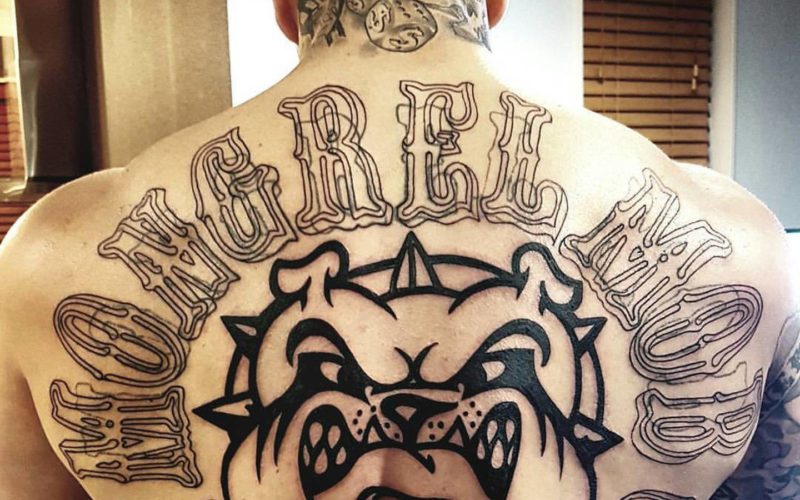Senior Mongrel Mob member Rota Beattie died with bullet fragments in his head, five years after he was shot during a car chase through central Christchurch. Police documents reveal how the underworld’s code of silence stonewalled detectives and allowed the gunman to avoid charges.
Sparks flew as a green station wagon with a smashed rear windscreen sped down a central Christchurch street.
The Subaru’s undercarriage scraped the tar seal as it overtook cars and ran red lights – its headlights off and its number plates missing.
It was nearly 2am on April 5, 2015 when the speeding car came to a sudden halt outside Christchurch Hospital’s emergency department.
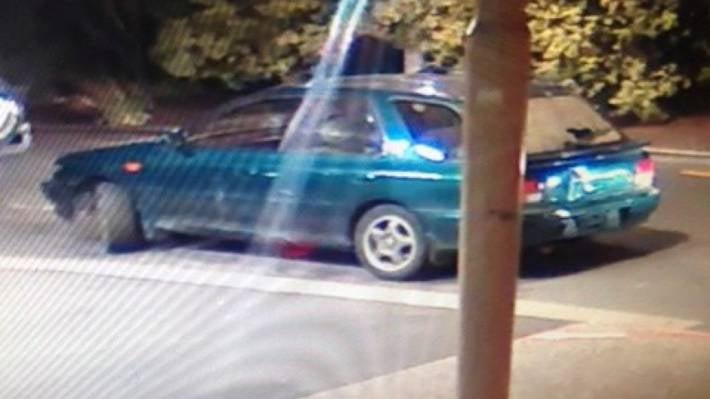
In the bloodstained back seat lay senior Mongrel Mob member Rota Beattie, wearing a red spotted bandanna and black sweatshirt. He was writhing in agony.
Two men from the vehicle helped nurses and security staff load Beattie onto a mobile hospital bed and then drove away.
Beattie, then 40, had been shot in the back of the head, near the base of his skull. He would soon be in intensive care in an induced coma and would undergo several operations, during which surgeons were unable to remove all the bullet fragments.
He survived but was permanently deaf in one ear and had nerve damage. During the next five years Beattie suffered bouts of extreme pain, although it did not stop him holding the office of vice-president of the Mongrel Mob’s Aotearoa chapter.
On July 27 this year, the Mongrel Mob leader suffered a seizure at his Christchurch home. He died two days later in hospital.
His grieving widow, Kirstyn Beattie, is convinced bullet fragments left in his head caused the seizure and his death. She hopes the shooter is suffering like her husband did.
Stuff has obtained large parts of the police’s investigation file – witness statements, police job sheets, briefings and photographs – which reveal how the underworld’s code of silence stonewalled detectives and allowed the gunman to avoid charges.
On the night of the shooting, Rota Beattie, his wife and her daughter were among dozens of invited guests at Ironclad Securities, a now defunct debt-collecting business on Wordsworth St in Sydenham, where the son of senior patched Head Hunters MC member Lyndon Richardson was celebrating his 21st birthday.
At the time, Ironclad Securities was believed to be the Head Hunters’ Christchurch headquarters. Richardson was the sole director of the business.
Not long after arriving at the event, Beattie was set upon by several members of the Head Hunters in what some believe was a planned attack.
He escaped with minor injuries, and left with his family.
Incensed at what had happened, Stuff understands Beattie acquired a shotgun and returned to Ironclad Securities in the Subaru station wagon, seeking retribution.
From the back seat, he fired at least two shots, shattering windows at the front of the debt-collecting firm while people were inside.
As Beattie and his crew sped off, another vehicle gave chase. The shot that smashed the rear windscreen and hit him just above the neck came from the chasing vehicle.
The documents obtained by Stuff reveal police believe he was rushed to hospital by Cody Hiri and a man who gave his name as Michael Bishop.
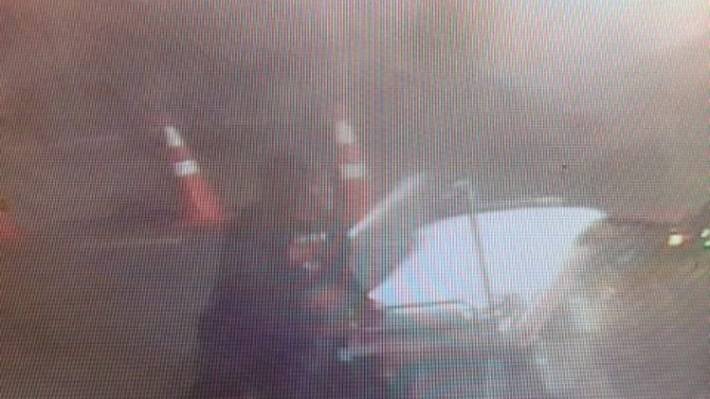
Detectives working on Operation Golf, the codename for the investigation, identified the pair using security footage from cameras at the entrance to the emergency department, and photo montages they had of Mongrel Mob members.
Hiri is thought to have been the driver of the Subaru.
A car fitting its description was found at his Poulson St home later that morning.
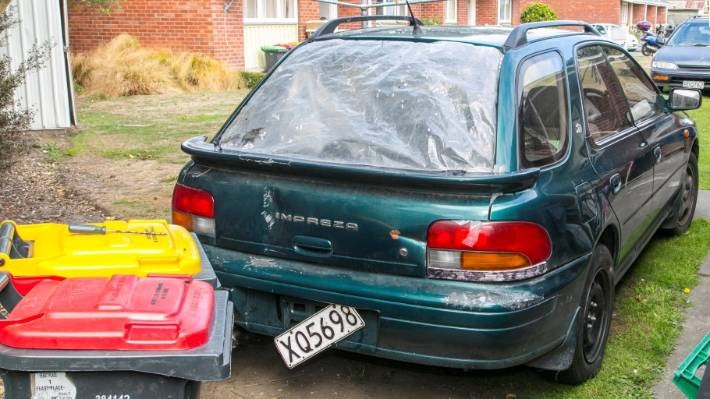
The rear windscreen had been removed and replaced with a sheet of plastic. There was blood and broken glass inside.
In a wheelie bin, police found a live shotgun cartridge smeared with what appeared to be reasonably fresh blood, a job sheet on the file says.
Hiri, Bishop and other Mongrel Mob members and associates at the property spoke to police, but pleaded ignorance.

Hiri said he’d heard Beattie, his friend, was in hospital, but didn’t know what had happened.
The then 23-year-old said the Subaru parked up in his backyard was used by lots of people, and he didn’t know who it belonged to. It wasn’t going at the time, he said.
The young club member declined to make a statement, but said he would meet with the officer at the police station later that day. He failed to keep that appointment.
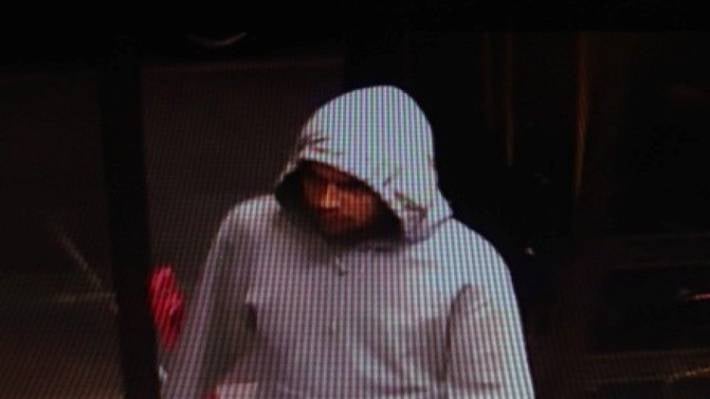
Bishop, who gave his name as Tom Jones, said he’d only been in Christchurch a few weeks and had been home all night with Hiri.
The Subaru was secured for forensic examination.
On April 10, five days after the shooting, Operation Golf detectives searched Ironclad Securities and Richardson’s Clyde Rd home.
No evidence pointing to the identity of the gunman was found.
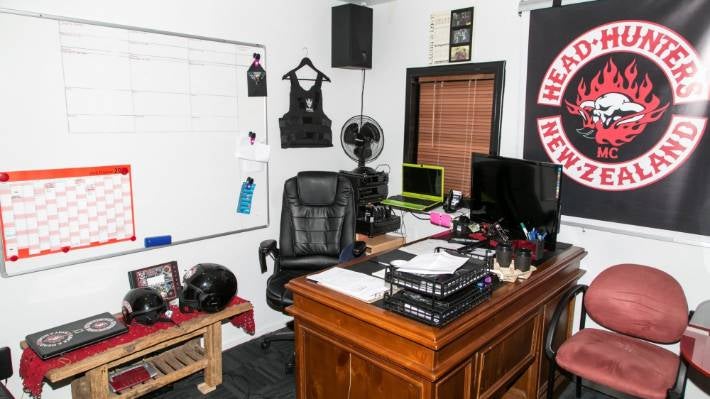
Later that day, at Christchurch Hospital, a detective spoke to Kirstyn Beattie, who’d previously said she was at her sister-in-law’s home in the city’s east on the night of the shooting and didn’t know what had happened.
The detective told her he needed to speak to her husband, and “open dialogue” between the Mongrel Mob and the Head Hunters to try to prevent more violence.
“Good luck trying to stop any retribution over this,” Beattie said.
The detective asked her whether she knew the identity of the gunman.
“Yeah, I do, and so does Rota, but I’m not going to tell you and he won’t either.”
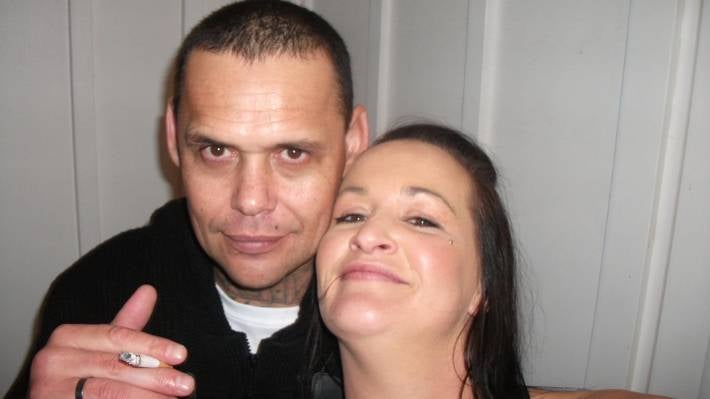
Beattie asked about the raids on the Head Hunters-linked properties.
The detective confirmed they were part of the investigation into the shooting, saying “we have to start somewhere”.
“Oh s…,” Beattie said. “We’ve said nothing about the Heads – none of us have.”
About the same time, police returned to Richardson’s home to talk to him about the issue of possible retaliation.
He said he didn’t think there would be any problems over what had happened, a police job sheet says.
However, if things did “ramp up”, Head Hunters members would travel to the city from other parts of the country, and he would have no control over that.
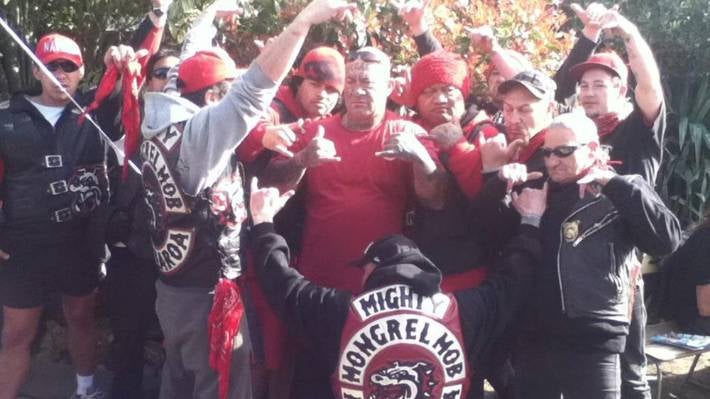
The president of the Mongrel Mob’s Aotearoa chapter, Joseph ‘Junior’ Wiringi, was in jail at the time so police approached old-time member Peter Gilbert to see if he could help keep the peace.
Gilbert, who was then on parole, said he was concerned he would be arrested for breaching his release conditions if he made contact with anyone from the club.
He wouldn’t say who was in charge outside the wire because that would put them at risk of prosecution if there was any retaliation.
The detective said they wanted to make sure that someone in a position of authority knew that what had happened to Rota Beattie had been started by someone in the car he was in.
It’s unclear whether police established that Beattie fired the shots at Ironclad. He never faced charges in connection with the incident.
On April 15, 10 days after the shooting, police talked to the injured club member for the first time.
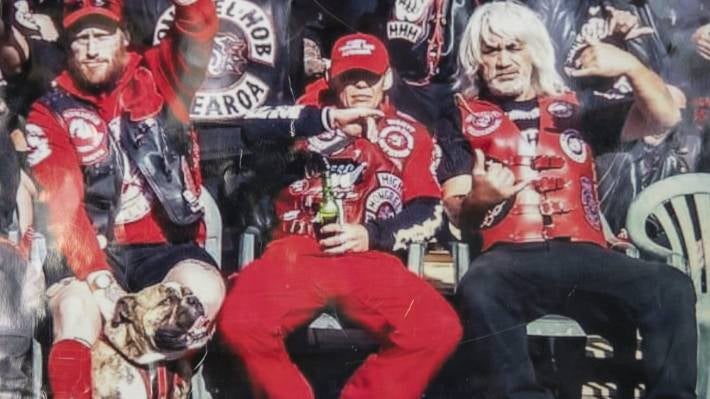
“I have difficulty at the moment remembering what happened, and I am always in pain,” he told a detective.
“I am not up to making any statement at this time and I ask that I be left alone to recover.”
If police wanted to contact him again they should do so via his wife and “leave me alone”, he said.
Several weeks later a detective called Kirstyn Beattie to see how her husband was recovering.
She said he was permanently deaf in one ear, struggled with his balance, had constant headaches and no memory of what had happened when he was shot.
Further surgery to remove bullet fragments, which were in contact with nerves and causing immense pain, was too dangerous. A head knock could move the fragments, which would have major ramifications for his health.
The detective told her that “lines of inquiry” into the shooting were “limited”.
The investigation would likely be put “on hold” unless someone in the Subaru was prepared to make a statement about what had happened.
That would never happen, Beattie said.
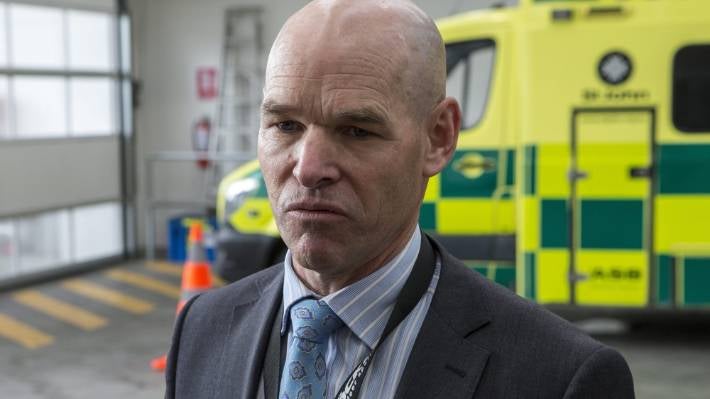
In August this year, Canterbury district crime manager Detective Inspector Greg Murton said the lack of cooperation from Rota Beattie and other possible witnesses “significantly hampered the investigation”.
The case had been “filed”, Murton said, meaning police were no longer working on it.
He wouldn’t comment on the cause of Beattie’s death, other than to say there was “no direct link between the shooting and his death”.
Kirstyn Beattie this week declined to comment.
Previously the 38-year-old had said she “hates” the person who shot her husband.
“If they aren’t thinking about the consequences of what they’ve done then that’s really sick. They should be feeling it, and they should be sorry.”
She said that she and her husband had refused to talk to police about the shooting because “there’s a code”.
“I know it sounds crazy to other people but in our life … you don’t talk to the police. It would have been worse off for us if he did.”
The “code” has long frustrated detectives in New Zealand, and further afield.
The University of Canterbury’s director of criminal justice, Jarrod Gilbert, says the underworld is “united by the rule of no narking”.
“It’s the number one rule. Without it, criminality breaks down.”
There are many serious club-related incidents that remain unsolved because people “shut up shop”, Gilbert says.
“That’s why the consequences for narking or informing … are incredibly high.”
There are gruesome examples of this.
In 2005, a man caught talking about the activities of the Head Hunters was given the choice of losing his tongue or finger as punishment.
A court heard how senior club member Terence McFarland ordered him to hold a knife over his pinky and a prospect hit the blade with a sledgehammer, slicing the finger off cleanly.
The club members refused to give the finger back, opting to add it to a collection of digits and ears.
Ironically, the victim went to police over the incident and McFarland and the prospect, Michael Brooks, received lengthy prison sentences.
Gilbert says the immediate consequences for breaking the code might be violence, but “in many ways it’s not the worst of it”.
“Every inch of your being just disappears in the eyes of your peers. You’ll be ostracised. You’ll lose all of your friends, all of your associates, potentially family because anyone who’s in that scene … adheres to the code and if you don’t, you’re out.”
Instead of involving the police, those in the underworld tended to resolve issues among themselves.
“An almost inevitable consequence of that is violence – tit-for-tat – and this, of course, is how gang wars start and how gang wars escalate,” Gilbert says.
However, each issue has its nuances, and while “utu is shouted from the rooftops … the passion for it simply may not be there”.
“There may be some other agreement decided between the parties. Just as is the case in the justice system where there are a range of resolutions to a dispute, the same is true on the street.”
Khylee Quince, an associate professor of law at the Auckland University of Technology, says it’s important to note that club members in New Zealand are overwhelmingly Māori “and Māori, whether they’re in clubs or not, generally have a low trust relationship with authority”.
That mistrust is intergenerational and stems from the harms of colonisation, Quince says, and is one of the reasons why crime is under-reported among Māori.
An underworld source says that police, despite assurances, can’t protect people who break ranks and provide them with information.
“They can’t protect you forever. They can only protect you while … court cases are on, then you’ve got to fend for yourself.”
Detective Superintendent Tom Fitzgerald, the police’s national crime manager, disagrees.
If people come forward with information “we can absolutely protect them long-term”.
Fitzgerald says he understands why those in the underworld choose to stay silent.
“You’ve got to look at it from the witness’ perspective. They’re living in a world where they have to weigh up carrying on with life as usual by saying nothing [with] a complete life change – putting their life in the hands of people that they don’t know and don’t have a long-term relationship with. From their perspective, it’s not just about mistrust, it’s about the cost versus benefits and life carrying on. It’s a massive call for them to make.”
Just because people refuse to talk, doesn’t mean that an investigation will stall, Fitzgerald says.
There are plenty of other tools, such as electronic and covert surveillance, that detectives can call upon to solve a crime.
“We work in smarter ways and you can see the results we get in numerous cases because of the ability we have to work around that.”
Make sure you have subscribed to our Facebook page or Twitter to stay tuned!
Source: Stuff by Blair Ensor
